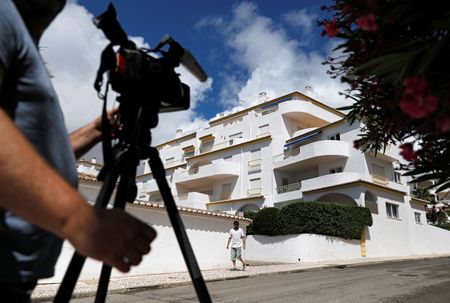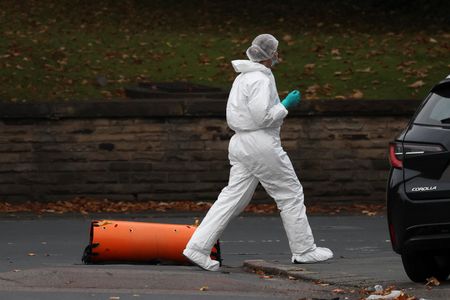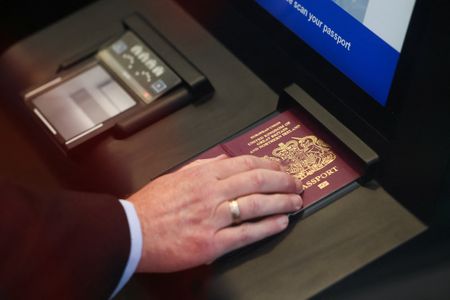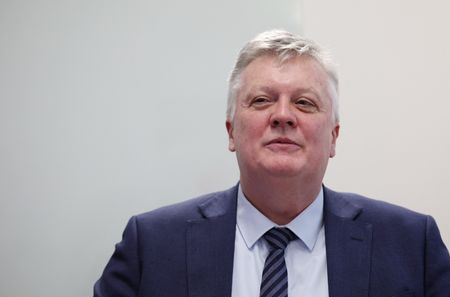LONDON (Reuters) -The mother of missing British toddler Madeleine McCann said in court on Wednesday a woman accused of stalking her for over two years made her feel distressed and “invaded” by approaching her at her house and claiming to be her daughter.
Kate McCann – whose daughter disappeared in May 2007, nine days short of her fourth birthday, while on holiday with her family in Portugal’s Algarve region – was giving evidence at the trial of Polish national Julia Wandelt.
Prosecutors say Wandelt, 24, stalked Kate and her husband Gerry McCann, including through emails, messages and phone calls, from June 2022 until her arrest in February.
Earlier this week, prosecutor Michael Duck told jurors at Leicester Crown Court they would hear “unequivocal scientific evidence” Wandelt had no familial link to the McCanns.
Kate McCann said she had previously experienced people claiming to be her missing daughter, but that Wandelt’s persistence was “totally” different.
She said she arrived home one day in December 2024 and was approached by Wandelt and her co-defendant, Karen Spragg, 61, who prosecutors say supported Wandelt’s claims.
According to Kate McCann, Wandelt said the “usual stuff (like) ‘I’m your daughter’ … she was asking for a DNA test”, adding that she felt “quite invaded” and told the pair to leave.
She also said Wandelt sent a letter the following day addressed to “mum”, which Kate McCann said she found “really distressing”.
Wandelt appeared to wipe away tears during parts of Kate McCann’s evidence and wailed loudly in the dock at the end of the prosecution’s questions.
Prosecutors say Wandelt conducted “a well-planned campaign of harassment” against the McCanns that also involved falsely telling police she remembered being abducted in 2007 and asking Kate McCann for a DNA test.
Wandelt and Spragg both deny one charge of stalking causing serious alarm or distress, and their trial is due to last about three weeks.
Madeleine’s parents continue to campaign for their daughter, who would now be 22, to be found and issue a statement each year on the anniversary of her disappearance.
(Reporting by Sam Tobin; editing by Mark Heinrich)










